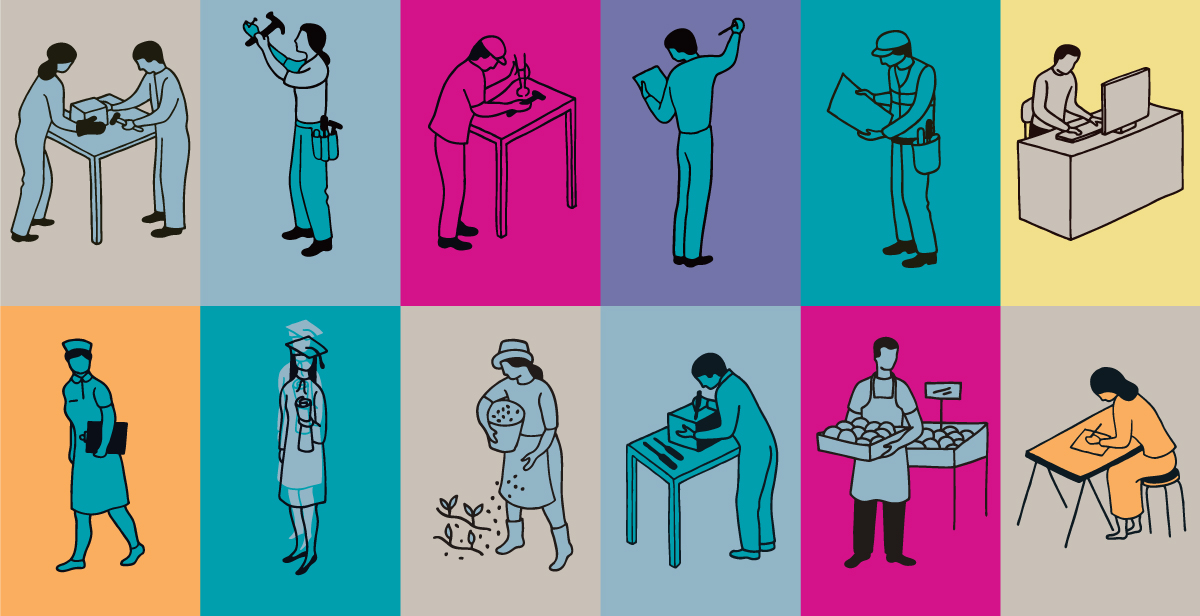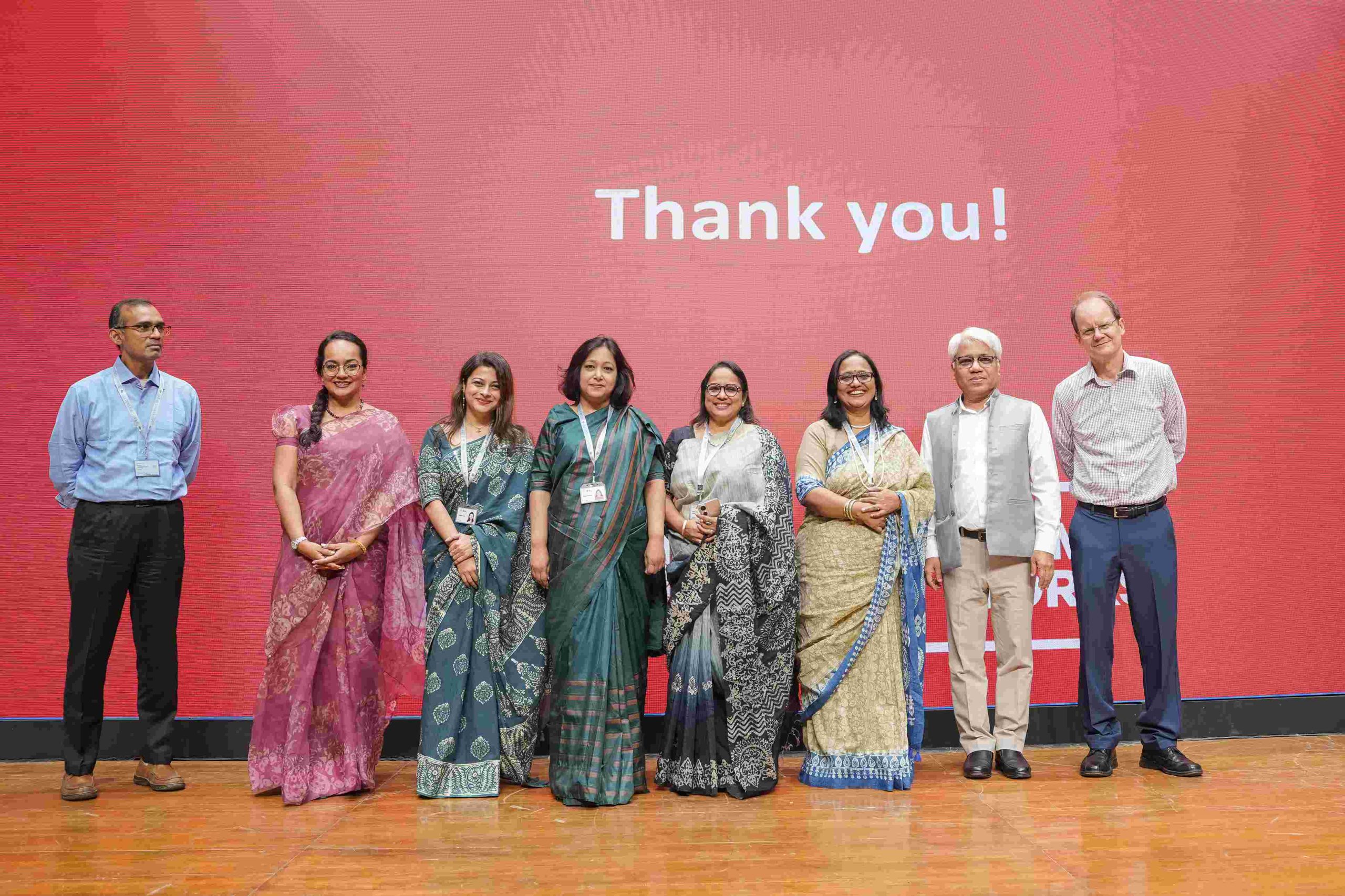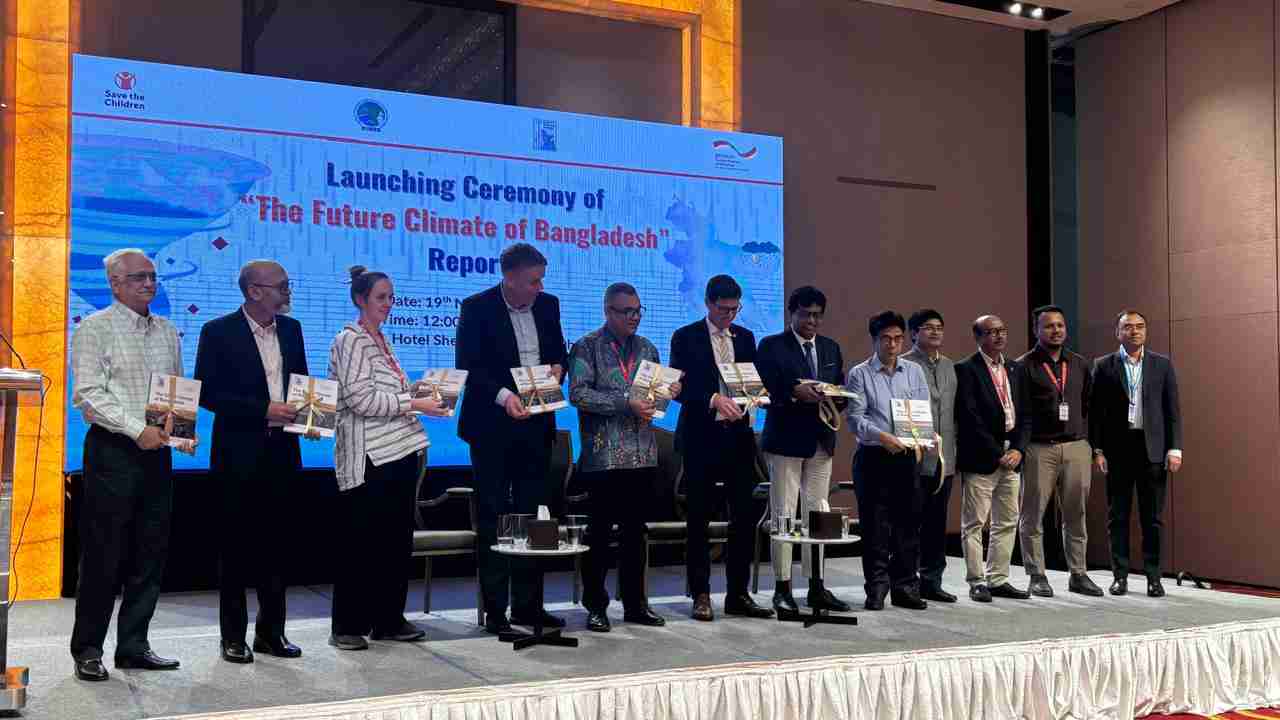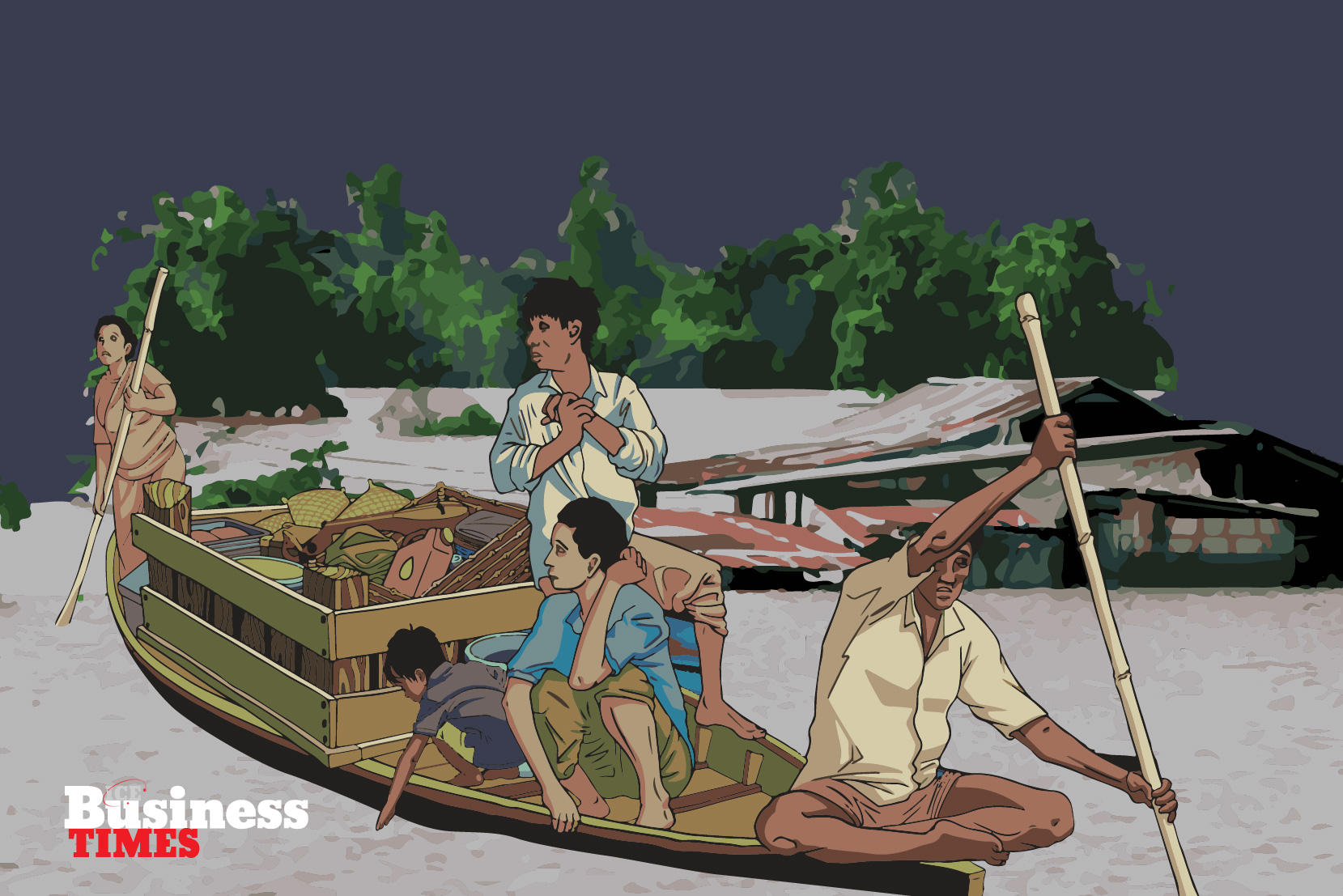As Bangladesh continues to grow as an economy, the organizations present here – both the local and the multinational ones – are thriving one their own. One key facet of these organizations are the human resources that they nurture. With a fairly young population, it is impressive to see that young professionals are on a path to constantly reinvent and up-skill themselves – equipping themselves with professional skills, taking decision-making roles and working in global companies. Over the last few decades, instrumental change has taken place in terms of management operations, HR practices and corporate communications. While there are endless opportunities, the challenges are also quite evident. Let’s take a deep dive into the changes that has taken place in these arena –
Reinventing Workplace Culture and People Strategy
As Bangladeshi organizations are growing, more emphasis is being put into inspecting the innate needs of the employees. This includes reshaping the company culture as a whole, and looking into diverse areas like – ensuring employee benefits, celebrating global and national holidays and sending gifts and privileges to family members. As a collective society, we in Bangladesh highly value the impact and role of our parents in almost all facets of our lives. So companies now have started to initiate a practice, where gifts are directly sent to the employees’ parents, along with intimate letters from the top management about their sons’ or daughters’ workplace performance. These accumulate to strongly motivate the employees to perform at their optimum levels.
Reinventing Workplace Culture and People Strategy
As Bangladeshi organizations are growing, more emphasis is being put into inspecting the innate needs of the employees. This includes reshaping the company culture as a whole, and looking into diverse areas like – ensuring employee benefits, celebrating global and national holidays and sending gifts and privileges to family members. As a collective society, we in Bangladesh highly value the impact and role of our parents in almost all facets of our lives. So companies now have started to initiate a practice, where gifts are directly sent to the employees’ parents, along with intimate letters from the top management about their sons’ or daughters’ workplace performance. These accumulate to strongly motivate the employees to perform at their optimum levels.
Automating recruitment processes
While recruitment has long been known to be a long and tedious task, visionary thinkers in Bangladesh have started to integrate technology into this and are coming up with solutions that automate the entire recruitment process for a company. Not only is this removing any human bias or error, but it also increases the organizations’ efficiency – thus leading to business growth. To talk in detail about this issue, we recently got in touch with Samuel Mursalin, the Founder and Chief Strategy Officer of Bolstar. Bolstar is a Human Resource (HR) Technology Firm that automates manual candidate recruitment processes and ensures companies get the best-fit talent to boost their recruitment return on investment (ROI).
With the help of cutting-edge technology, they streamline candidate sourcing, shortlisting, and assessment processes and assist our clientele with a comprehensive evaluation of the unique capabilities of potential candidates. While such a global practice is quite new in Bangladesh, the response has been mixed. “Some of the managers have embraced our platform wholeheartedly, while some are reluctant. They are afraid that our platform might replace them; not knowing that our solution is designed in such a way that it takes up the tedious task from the hands of these managers – so that they are free to tackle the more complex workplace problems”, says Samuel.
Embracing life-long learning
The concept of continuing to learn new skills and specializing on one’s own forte, even after graduating – is something that is yet to be fully embraced in Bangladesh. But over the last few years, several corporate trainers and training institutes have started to gradually strengthen this concept in Bangladesh. Employees now engage in corporate training and seminars hosted by subject matter experts and enhance their professional skill sets accordingly.
Md. Sohan Haidear, the Managing Director of Smartifier Training and Consultation shared his thoughts on this, “Corporate training and management coaching are radically new concepts in Bangladesh. But it’s good to see that many of the veteran corporate houses as well as the local startups are embracing the idea of developing their employees’ skill sets. And much of the progress has been accelerated due to the COVID-19 pandemic; as employers have to virtually engage and equip their workforce for the challenging future ahead.” In the new normal and beyond, it is of utmost importance that employees get trained in their relevant fields and beyond, in order to induce more value in their respective organizations.
Local edtech platforms like Ghoori Learning and 10 Minute School are playing an instrumental role in upskilling the young population of the country. Interactive, self-paced courses on Career grooming, Leadership, Emotional Intelligence and many others are helping students and young professionals to learn new skills and add more into their resumes. While countries like Malaysia and Singapore emphasize on skill development as a core part of their national employment strategy, Bangladesh also needs to step up in the upcoming years and train the youth population to transform them into future business leaders.
Bridging the Corporate and Classroom gap
While students still rely mostly on theoretical learnings, organizations are now slowly focusing on collaborating with universities and shaping up the undergraduate students. This involves a panel of veteran professionals engaging with students via mentorship sessions and outreach programs. Students get to have a glimpse of how organizations operate, the various roles they can aspire to be in and most importantly, the numerous skill sets that they need to acquire in order to thrive in these roles going forward. Organizations ranging from a diverse set of industries have set up their own skill development and internship programs that help the students in this regard.
Salwa Khan, an HR professional who works at a telecommunication company said, “Our mentorship program is a core part of our HR strategy. By properly utilizing this platform, we intend to pinpoint high potential candidates, train them in some capacity while they are still in their undergraduate programs and recruit them when it’s about time. It’s a long, steady process but surely pays its dividends in the long run as we get to onboard candidates who already have a solid idea about the purpose and function of our organization”.
Going beyond the metropolitan
In alignment with the holistic development of the country, urbanization of Bangladesh is also increasing. Recent statistics show that around 37.41% of Bangladesh’s total population live in urban areas and cities. In an article by Dhaka Tribune, it has been stated that the growth rate is anticipated to be 38 by 2021. With the increasing urbanisation, the growth of the urban population also has increased to a ratio of 5.83 compared to the national growth rate, which is 1.99. But this advancement barely takes into account that a large chunk of the rural youth is deprived of all the engagement opportunities and job placements that their urban counterparts are getting. Nazmul Ahmed, a Project Officer at an INGO shared his thoughts about this, “It is astounding to see how much the youth in rural areas suffer from access to life-changing opportunities.
Yes, internet penetration and smartphone availability of the country did rise, but youth living in small cities and villages of Bangladesh still do not have much access to internship opportunities, co-curricular activities and other avenues that might have helped in enhancing their skillsets. Thus, they have no other option but to either stick to blue collar jobs or remain unemployed. The hyper competitive job market is of no match to their skillsets; so they have no other option but to lag behind. The disparity across the region is astounding. We need more inclusive training and skill development opportunities for the youth. Only then can we ensure proper economic growth from all parts of the country”
The road ahead
If we closely inspect Bangladesh’s economic growth of the last decade, we can deduce that the country is in a growth momentum in terms of holistic development. With the median age of Bangladesh being 27.6 years, the country is on the verge of utilizing the benefits of demographic dividend. Theoretically, the demographic dividend is the difference between the number of working-age people aged 15 to 64 and the number of non-working-age people under 14 and over 65.
So, properly harnessing the potential of the youth of Bangladesh can lead to the following improvements – improved labor supply for both the local and the global market, growth of savings as the human capital earns and increases monetary savings, increased quality of human capital and expansion of the domestic market. However, there is a catch – demographic dividend period of any country lasts only for a maximum of 20 to 30 years. So Bangladesh, has up to 2040 after which there will be an inevitable decline. Currently, the working population of our country is at 106.1 million, out of which the actual labor force is 62.1 million. Out of this 62.1 million, around 59.5 million are employed in the public and private sector, 2.6 million people are fully unemployed and the remaining 44 million are completely unemployed.
Hence, this is the perfect time to increase the economy of Bangladesh by engaging this working population in productive, highly efficient socio-economic activities. Neighboring countries of the region like China, South Korea, Vietnam, Taiwan and Thailand, have already taken their economic position to new heights through the effective use of demographic dividends. Yes, a steady, planned approach has been necessary but that has been done so with utmost rigor and focus. While RMG still remains a dominant sector, we need to think beyond our comfort zone and train our youth in other high-impact sectors, like ICT, Engineering, Agriculture and Service industries. Only then can we have a diverse youth population that is able to derive value from multiple avenues.
Joint collaborating among the Public and Private entities are required; backed by a systematic approach to upskill and develop the country’s youth. If Bangladesh’s functional youth group can be trained through long-term planned training, then these trained youth groups will be able to establish their position in the country and in the international arena. And thus in the near future, Bangladesh will be a middle-income country and will be far ahead in the list of developed countries in 2041.
For any country, the youth is at the center of its development. It is the youth who will challenge the norm, embrace new technologies and introduce radical changes in how we live our everyday lives. Thus, it is also up to us in how we nurture our young population from the very beginning, ensure good employment opportunities for them and develop them accordingly. Only then can we derive the most out of our human capital and witness exponential growth as a nation.
The Bangladesh in the last 50 years has been a narrative of strengthening the backbone, setting up its deep pillars and slowly becoming self-reliant. Let us all hope that the next 50 years will be a story of harnessing the full potential of today’s digital first generation, exploring nascent industries and leading the globe from the very front. That is how we can live up to the aspirations and hopes of a truly independent nation, one where we make the most out of our resources and build our own future. Let us hope for a better, more trained and future-ready Bangladesh.
While recruitment has long been known to be a long and tedious task, visionary thinkers in Bangladesh have started to integrate technology into this and are coming up with solutions that automate the entire recruitment process for a company. Not only is this removing any human bias or error, but it also increases the organizations’ efficiency – thus leading to business growth. To talk in detail about this issue, we recently got in touch with Samuel Mursalin, the Founder and Chief Strategy Officer of Bolstar. Bolstar is a Human Resource (HR) Technology Firm that automates manual candidate recruitment processes and ensures companies get the best-fit talent to boost their recruitment return on investment (ROI).
With the help of cutting-edge technology, they streamline candidate sourcing, shortlisting, and assessment processes and assist our clientele with a comprehensive evaluation of the unique capabilities of potential candidates. While such a global practice is quite new in Bangladesh, the response has been mixed. “Some of the managers have embraced our platform wholeheartedly, while some are reluctant. They are afraid that our platform might replace them; not knowing that our solution is designed in such a way that it takes up the tedious task from the hands of these managers – so that they are free to tackle the more complex workplace problems”, says Samuel.
Embracing life-long learning
The concept of continuing to learn new skills and specializing on one’s own forte, even after graduating – is something that is yet to be fully embraced in Bangladesh. But over the last few years, several corporate trainers and training institutes have started to gradually strengthen this concept in Bangladesh. Employees now engage in corporate training and seminars hosted by subject matter experts and enhance their professional skill sets accordingly. Md. Sohan Haidear, the Managing Director of Smartifier Training and Consultation shared his thoughts on this, “Corporate training and management coaching are radically new concepts in Bangladesh. But it’s good to see that many of the veteran corporate houses as well as the local startups are embracing the idea of developing their employees’ skill sets.
And much of the progress has been accelerated due to the COVID-19 pandemic; as employers have to virtually engage and equip their workforce for the challenging future ahead.” In the new normal and beyond, it is of utmost importance that employees get trained in their relevant fields and beyond, in order to induce more value in their respective organizations. Local edtech platforms like Ghoori Learning and 10 Minute School are playing an instrumental role in upskilling the young population of the country. Interactive, self-paced courses on Career grooming, Leadership, Emotional Intelligence and many others are helping students and young professionals to learn new skills and add more into their resumes. While countries like Malaysia and Singapore emphasize on skill development as a core part of their national employment strategy, Bangladesh also needs to step up in the upcoming years and train the youth population to transform them into future business leaders.
Bridging the Corporate and Classroom gap
While students still rely mostly on theoretical learnings, organizations are now slowly focusing on collaborating with universities and shaping up the undergraduate students. This involves a panel of veteran professionals engaging with students via mentorship sessions and outreach programs. Students get to have a glimpse of how organizations operate, the various roles they can aspire to be in and most importantly, the numerous skill sets that they need to acquire in order to thrive in these roles going forward. Organizations ranging from a diverse set of industries have set up their own skill development and internship programs that help the students in this regard.
Salwa Khan, an HR professional who works at a telecommunication company said, “Our mentorship program is a core part of our HR strategy. By properly utilizing this platform, we intend to pinpoint high potential candidates, train them in some capacity while they are still in their undergraduate programs and recruit them when it’s about time. It’s a long, steady process but surely pays its dividends in the long run as we get to onboard candidates who already have a solid idea about the purpose and function of our organization”.
Going beyond the metropolitan
In alignment with the holistic development of the country, urbanization of Bangladesh is also increasing. Recent statistics show that around 37.41% of Bangladesh’s total population live in urban areas and cities. In an article by Dhaka Tribune, it has been stated that the growth rate is anticipated to be 38 by 2021. With the increasing urbanisation, the growth of the urban population also has increased to a ratio of 5.83 compared to the national growth rate, which is 1.99. But this advancement barely takes into account that a large chunk of the rural youth is deprived of all the engagement opportunities and job placements that their urban counterparts are getting. Nazmul Ahmed, a Project Officer at an INGO shared his thoughts about this, “It is astounding to see how much the youth in rural areas suffer from access to life-changing opportunities.
Yes, internet penetration and smartphone availability of the country did rise, but youth living in small cities and villages of Bangladesh still do not have much access to internship opportunities, co-curricular activities and other avenues that might have helped in enhancing their skillsets. Thus, they have no other option but to either stick to blue collar jobs or remain unemployed. The hyper competitive job market is of no match to their skillsets; so they have no other option but to lag behind. The disparity across the region is astounding. We need more inclusive training and skill development opportunities for the youth. Only then can we ensure proper economic growth from all parts of the country”
The road ahead
If we closely inspect Bangladesh’s economic growth of the last decade, we can deduce that the country is in a growth momentum in terms of holistic development. With the median age of Bangladesh being 27.6 years, the country is on the verge of utilizing the benefits of demographic dividend. Theoretically, the demographic dividend is the difference between the number of working-age people aged 15 to 64 and the number of non-working-age people under 14 and over 65. So, properly harnessing the potential of the youth of Bangladesh can lead to the following improvements – improved labor supply for both the local and the global market, growth of savings as the human capital earns and increases monetary savings, increased quality of human capital and expansion of the domestic market.
However, there is a catch – demographic dividend period of any country lasts only for a maximum of 20 to 30 years. So Bangladesh, has up to 2040 after which there will be an inevitable decline. Currently, the working population of our country is at 106.1 million, out of which the actual labor force is 62.1 million. Out of this 62.1 million, around 59.5 million are employed in the public and private sector, 2.6 million people are fully unemployed and the remaining 44 million are completely unemployed.
Hence, this is the perfect time to increase the economy of Bangladesh by engaging this working population in productive, highly efficient socio-economic activities. Neighboring countries of the region like China, South Korea, Vietnam, Taiwan and Thailand, have already taken their economic position to new heights through the effective use of demographic dividends. Yes, a steady, planned approach has been necessary but that has been done so with utmost rigor and focus. While RMG still remains a dominant sector, we need to think beyond our comfort zone and train our youth in other high-impact sectors, like ICT, Engineering, Agriculture and Service industries.
Only then can we have a diverse youth population that is able to derive value from multiple avenues. Joint collaborating among the Public and Private entities are required; backed by a systematic approach to upskill and develop the country’s youth. If Bangladesh’s functional youth group can be trained through long-term planned training, then these trained youth groups will be able to establish their position in the country and in the international arena. And thus in the near future, Bangladesh will be a middle-income country and will be far ahead in the list of developed countries in 2041.
For any country, the youth is at the center of its development. It is the youth who will challenge the norm, embrace new technologies and introduce radical changes in how we live our everyday lives. Thus, it is also up to us in how we nurture our young population from the very beginning, ensure good employment opportunities for them and develop them accordingly. Only then can we derive the most out of our human capital and witness exponential growth as a nation.
The Bangladesh in the last 50 years has been a narrative of strengthening the backbone, setting up its deep pillars and slowly becoming self-reliant. Let us all hope that the next 50 years will be a story of harnessing the full potential of today’s digital first generation, exploring nascent industries and leading the globe from the very front. That is how we can live up to the aspirations and hopes of a truly independent nation, one where we make the most out of our resources and build our own future. Let us hope for a better, more trained and future-ready Bangladesh.















